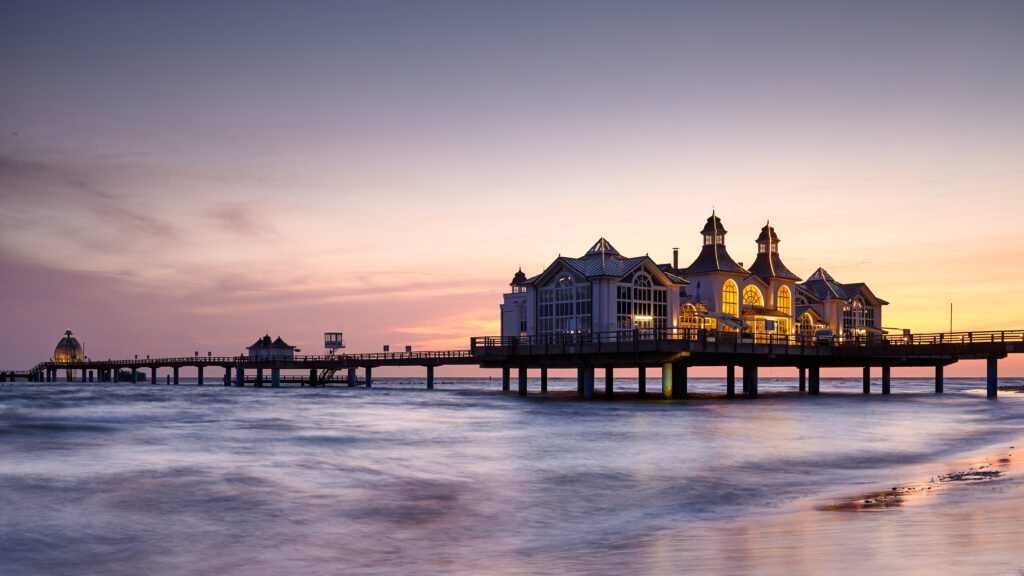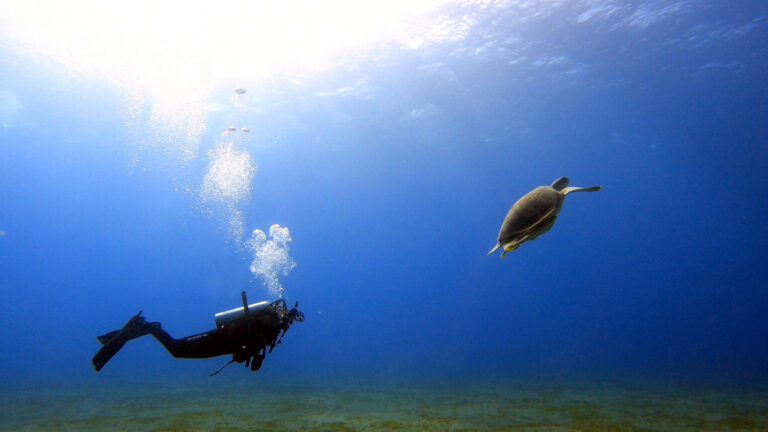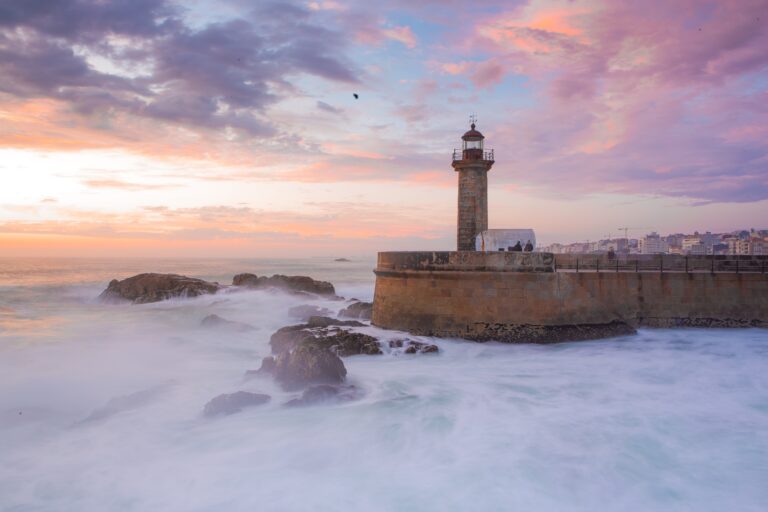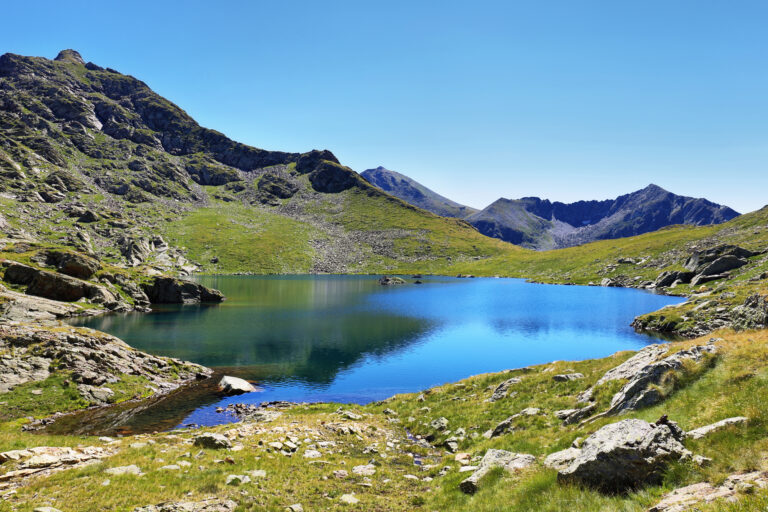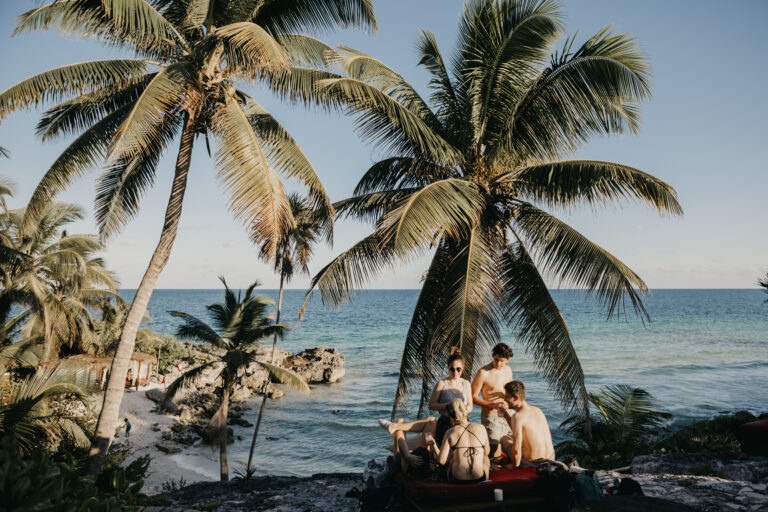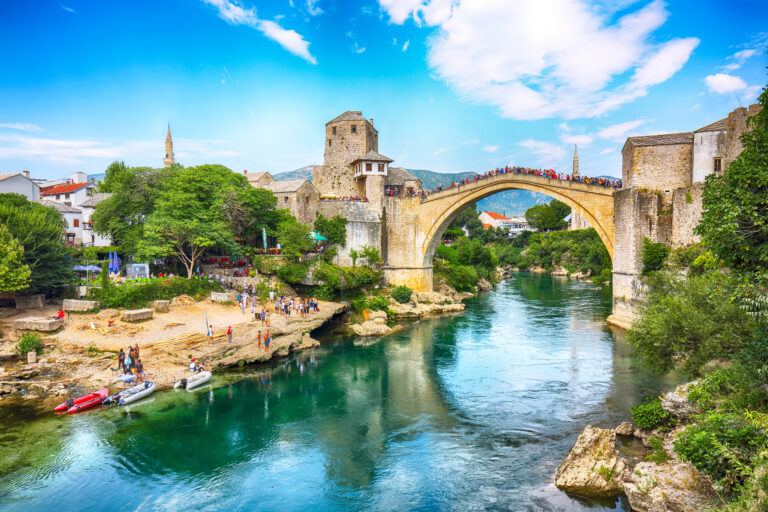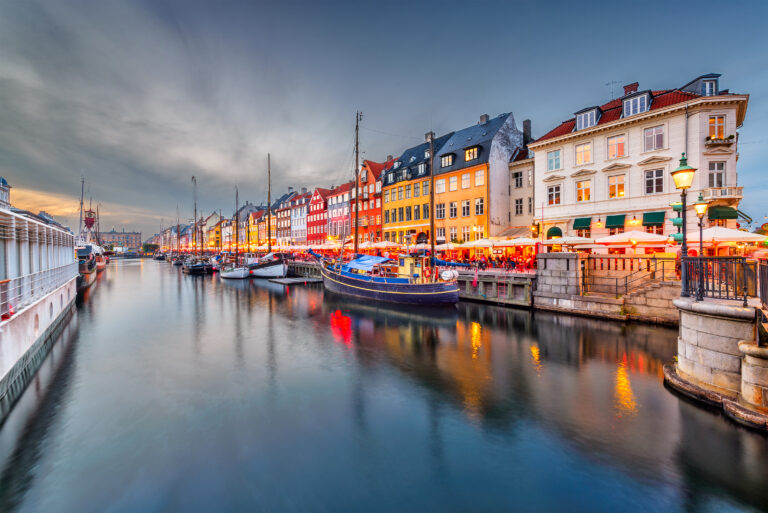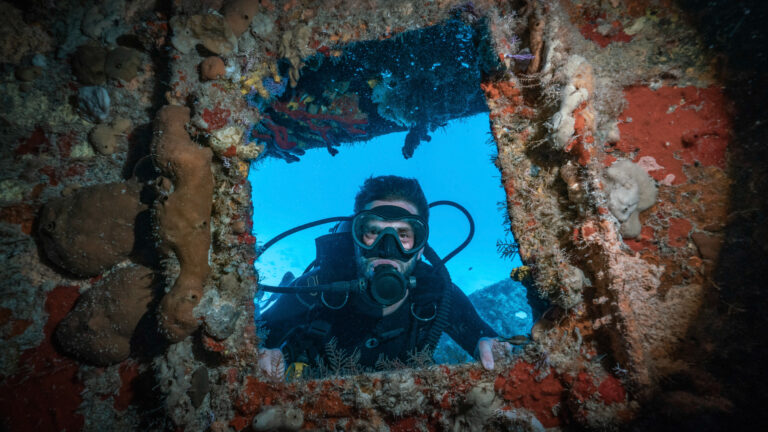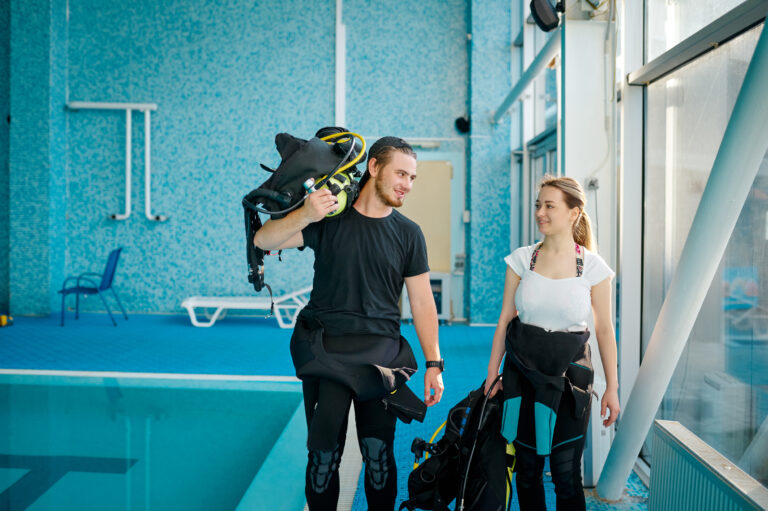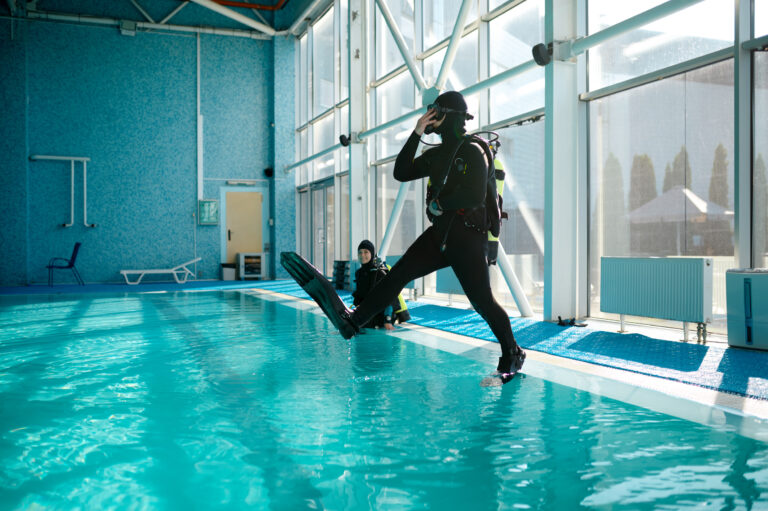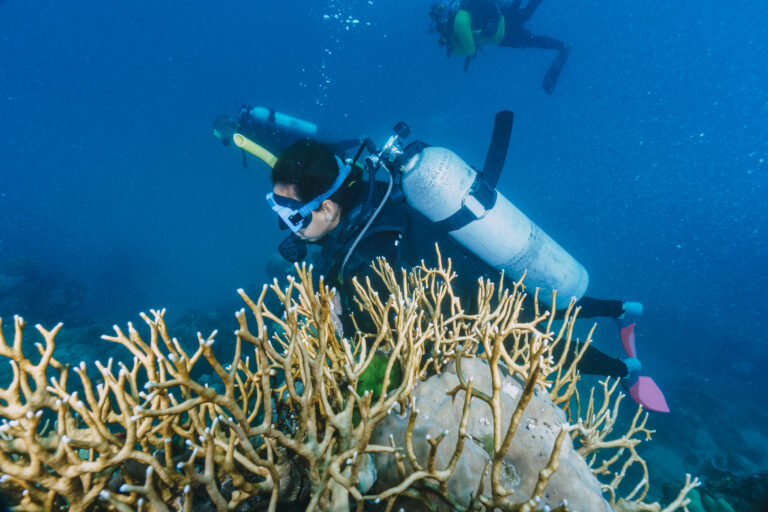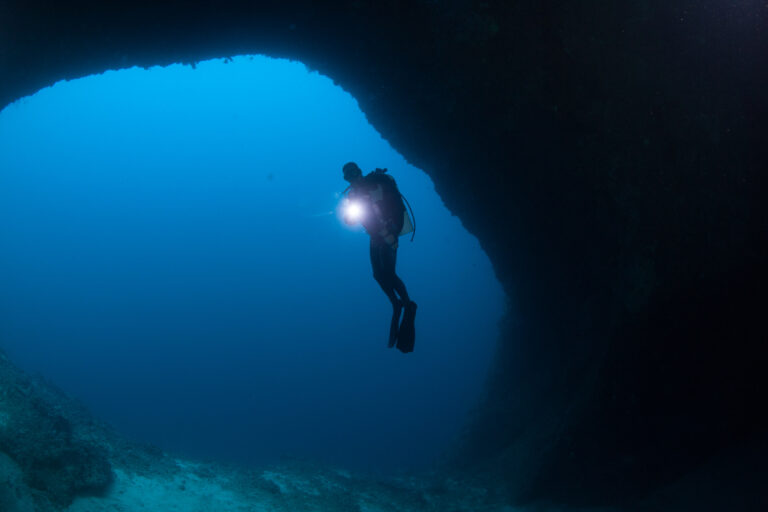SCUBA DIVERS’ TRAVEL GUIDE TO Germany
If you’re looking for a unique and diverse scuba diving destination, Germany might surprise you with its variety of underwater attractions. From the Baltic Sea to the Alpine lakes, Germany offers scuba divers a chance to explore history, nature, and culture in different settings. Whether you’re into cold water wreck diving, freshwater quarry diving, or altitude diving, Germany has something for you.
You can dive into the past and see the remains of WWII ships and planes in the Baltic Sea, or visit the sunken city of Nordhäuser See, a specially built dive site with sculptures and buildings. You can also enjoy the clear and calm waters of Lake Constance, the third-largest lake in Central Europe, where you can see trout, perch, and catfish. Or you can challenge yourself with technical diving in the Kreidesee Hemmoor, a former chalk mine that flooded in the 1970s and has many interesting features to explore.
Germany is a scuba diving destination that will delight you with its diversity and beauty. Don’t miss the opportunity to discover this hidden gem of Europe.
LOCATION AND GEOGRAPHY
Germany might not be the first country that springs to mind when considering scuba diving destinations, but this landlocked European nation offers a surprisingly diverse range of underwater experiences. Geographically, Germany is bordered by the North Sea and the Baltic Sea to the north, providing marine scuba diving opportunities with unique wreck sites and brackish water ecosystems. The country’s interior is dotted with an abundance of freshwater lakes and quarries, many of which have been repurposed as dive sites. The clear waters of Lake Constance (Bodensee) on the border with Switzerland and Austria, and the Kreidesee in Hemmoor, a flooded chalk quarry in Lower Saxony, are particularly noteworthy for their visibility and underwater features. These inland sites often feature sunken villages, forest remnants, and an array of freshwater flora and fauna, offering a distinctive diving experience that contrasts with the saltwater environments along Germany’s coastline.
VISA AND ENTRY REQUIREMENTS
Before planning your scuba diving adventure in Germany, it is essential to understand the visa and entry requirements. Germany is a member of the European Union and a signatory to the Schengen Agreement, which allows for passport-free travel between 26 European countries. Visitors from other Schengen countries can enter Germany without a visa for short stays. For travelers from non-Schengen countries, the requirements vary: many, including those from the United States, Canada, Australia, and Japan, can enter visa-free for tourism or business stays of up to 90 days within a 180-day period. However, visitors from countries without a visa waiver agreement with the Schengen zone must apply for a Schengen visa prior to arrival. It’s important to check the latest information from the German embassy or consulate in your home country, as regulations can change. Additionally, ensure your passport is valid for at least three months beyond your planned departure date from the Schengen area. Keep in mind that while Germany does not have extensive coastal areas, it offers unique freshwater diving experiences in lakes and quarries, which are subject to local regulations and may require additional permits or proof of diving certification.
GETTING TO Germany
Getting to Germany for a scuba diving adventure is a straightforward experience, thanks to the country’s well-connected transportation infrastructure. Major international airlines frequently service Germany’s key airports such as Frankfurt am Main, Munich, and Berlin, which act as primary gateways for travelers from around the globe. Upon arrival, divers can take advantage of Germany’s efficient public transportation system, including trains and buses, to reach coastal regions like the Baltic Sea or inland dive sites such as Lake Constance (Bodensee). For those who prefer the flexibility of driving, car rentals are readily available at airports and city centers. Although Germany may not be the first country that comes to mind for scuba diving, it offers a unique underwater experience with its intriguing wrecks and freshwater dive sites, all accessible with a short domestic flight or a scenic drive through the picturesque German countryside.
BEST TIME TO DIVE
The best time to scuba dive in Germany largely depends on the type of diving experience you’re seeking. For freshwater enthusiasts, the summer months from June to August offer the most comfortable conditions, with warmer water temperatures ranging from 18°C to 23°C (64°F to 73°F) in lakes such as Lake Constance (Bodensee) and the alpine lakes in Bavaria. Visibility in these freshwater sites can be exceptional during this period. However, for those looking to explore the Baltic Sea, the optimal window extends from late spring through early autumn, as the brackish water reaches its highest temperatures, typically between 16°C to 19°C (60°F to 66°F), and the marine life is most active. Keep in mind that even during these periods, a drysuit or a thick wetsuit is recommended due to the generally cooler water temperatures. Outside of these months, diving is still possible, but expect colder conditions and be prepared with appropriate thermal protection.
ACCOMMODATION OPTIONS
Germany might not be the first country that springs to mind when considering scuba diving destinations, but it offers a unique underwater experience, particularly in its lakes and quarries. Accommodation options for divers are as varied as the dive sites themselves. In the north, near the Baltic Sea, divers can find cozy seaside guesthouses and resorts that cater to the needs of water enthusiasts, with gear storage and drying areas. Inland, close to popular freshwater dive sites like Lake Constance or the Kreidesee in Hemmoor, divers can opt for comfortable hotels, charming bed and breakfasts, or even campgrounds for a closer-to-nature experience. Many of these accommodations are accustomed to divers and provide facilities such as tank refills and equipment rentals. For a more immersive diving expedition, liveaboard trips are not common in Germany, but some dive centers offer packages that include both diving and lodging, ensuring a hassle-free dive holiday in this unexpected underwater gem.
DIVE OPERATORS AND DIVE SHOPS
Germany might not be the first country that springs to mind when considering scuba diving destinations, but it offers a unique underwater experience for those willing to explore its waters. Dive operators and shops in Germany are well-equipped to cater to a range of diving interests, from the historical wrecks in the Baltic Sea to the surprisingly clear freshwater lakes such as Lake Constance (Bodensee) and the Kreidesee in Hemmoor. German dive shops typically offer a full spectrum of services, including equipment rental, air fills, and a variety of certification courses through recognized agencies like PADI, SSI, and CMAS. Many operators also organize guided dives, which can be particularly beneficial when diving in less familiar or challenging environments. The staff at these shops are often multilingual, knowledgeable about local dive sites, and committed to maintaining high safety standards. Whether you’re looking to explore submerged forests, encounter freshwater marine life, or delve into the past with wreck diving, the dive operators in Germany provide the expertise and support necessary for a memorable underwater adventure.
TRANSPORTATION WITHIN Germany
While Germany may not be the first country that comes to mind for scuba diving, it offers a variety of freshwater diving experiences in lakes and quarries, with the occasional opportunity for wreck diving in the Baltic Sea. When it comes to transportation within the country, Germany boasts an efficient and extensive public transportation network, making it convenient for divers to navigate to their underwater destinations. The Deutsche Bahn (DB) train system connects major cities and regions with high-speed services like the ICE, as well as regional trains that access more remote areas. For closer distances, regional buses complement train routes and can take divers to smaller towns and dive sites. Car rentals are widely available for those who prefer the flexibility to explore at their own pace, and they are particularly useful for transporting bulky gear to more secluded dive spots. Autobahns (highways) are well-maintained and provide swift travel across the country, but be mindful of environmental zones (Umweltzonen) in city centers, where only vehicles meeting specific emission standards are allowed. Whether you’re heading to the alpine lakes in the south or the brackish waters of the north, Germany’s transportation infrastructure will ensure a smooth journey to your underwater adventure.
CURRENCY AND PAYMENT METHODS
When planning a scuba diving trip to Germany, it’s important to note that the country uses the Euro (€) as its official currency. Credit cards, particularly Visa and MasterCard, are widely accepted in most dive shops, resorts, and hotels, especially in popular diving destinations like the Baltic Sea coast or the lakes in the south. However, it’s advisable to carry some cash for smaller purchases, rural dive spots, or in case of establishments that do not accept cards. ATMs are readily available in cities and towns, but less so in remote areas, so plan accordingly. It’s also worth checking with your bank about foreign transaction fees. While Germany is part of the SEPA (Single Euro Payments Area), which simplifies bank transfers in euros, always ensure that your financial arrangements are in order before embarking on your underwater adventure. Remember to notify your bank of your travel plans to avoid any potential issues with your cards while abroad.
LANGUAGE AND COMMUNICATION
When diving in Germany, communication underwater follows the universal hand signals that are recognized by divers around the globe, ensuring that even if you dive with locals or international visitors, everyone can understand each other beneath the waves. However, on the surface, the primary language spoken is German, and while many Germans are proficient in English—especially within the diving community—it is appreciated when divers make an effort to learn a few basic German phrases. Dive briefings, emergency procedures, and equipment discussions may often be conducted in German, so it is beneficial for non-German speakers to familiarize themselves with key diving terminology in German or to ensure that there is an English-speaking guide or translator available. Additionally, understanding local signage, instructions at dive shops, and being able to interpret dive site information can enhance safety and overall experience. It’s also a great opportunity to bond with local divers and immerse yourself in the German diving culture by picking up the local lingo.
LOCAL CULTURE AND ATTRACTIONS
Germany might not be the first country that springs to mind when one thinks of scuba diving, but this landlocked European gem offers a unique underwater experience that is deeply intertwined with its rich cultural heritage. Beyond the dive sites, Germany’s local culture is a tapestry of historical grandeur and contemporary vibrancy. Visitors can explore castles and cathedrals that whisper tales of a medieval past, or immerse themselves in the modern allure of cities like Berlin and Munich, where art, music, and festivals abound. After a day beneath the waves in one of Germany’s crystalline lakes or flooded quarries, divers can indulge in the hearty local cuisine, sampling regional specialties such as pretzels, schnitzel, and an array of world-renowned beers. Oktoberfest in Bavaria is a particularly festive time to visit, offering a blend of traditional lederhosen, folk music, and convivial beer halls. Whether it’s the charm of a small village’s cobblestone streets or the buzz of a cosmopolitan city, Germany’s local culture and attractions provide a delightful complement to the underwater adventures that await.
CULTURAL ETIQUETTE AND TIPS
When scuba diving in Germany, it’s important to respect the cultural norms and etiquette that reflect the country’s values of orderliness and environmental consciousness. Punctuality is highly regarded, so ensure you arrive on time for any arranged dives or training sessions. German divers often expect efficiency and thoroughness, so be prepared with all necessary documentation and gear, and listen attentively to briefings. Environmental conservation is taken seriously; be mindful not to disturb marine life or damage coral reefs. It’s customary to greet fellow divers with a friendly “Hallo” and a handshake, and after dives, sharing experiences over a local beer is common, but always drink responsibly. Tipping is not as prevalent as in other countries, but showing appreciation for exceptional service with a modest tip is welcomed. Lastly, while English is widely spoken in the diving community, learning a few basic phrases in German can go a long way in showing respect and enhancing your interactions with local divers and staff.
LOCAL LAWS AND REGULATIONS RELEVANT TO TOURISTS
When planning a scuba diving trip to Germany, it is essential for tourists to familiarize themselves with the local laws and regulations to ensure a safe and lawful experience. In Germany, scuba diving is generally regulated by the Strahlenschutzverordnung (Radiation Protection Ordinance), which includes provisions for underwater activities. Divers must adhere to environmental protection laws, such as not disturbing or removing marine life and avoiding protected areas. It is mandatory to carry a valid diving certification from a recognized agency and to dive within the limits of one’s certification level. Diving in some inland waters may require a permit or registration with local authorities, and in certain areas, such as national parks or nature reserves, specific rules may apply. Additionally, the use of dive flags to signal the presence of divers to boats is compulsory in open waters. It is advisable to check with local dive shops or authorities for the most current information on diving regulations, as they can vary by region and are subject to change.
SAFETY TIPS AND EMERGENCY CONTACTS
When diving in Germany, safety should be your utmost priority. Always ensure that your equipment is in excellent condition and that you are well-acquainted with the local diving conditions, which can vary from the brisk waters of the Baltic Sea to the serene visibility in the Kulkwitzer See. It is crucial to be aware of the potential for strong currents and limited visibility in some areas, and to plan your dive according to your experience level. Always dive with a buddy and within the limits of your training, and be mindful of the colder temperatures which may require appropriate thermal protection. In case of an emergency, it is important to know that the emergency services number in Germany is 112. Additionally, divers should be familiar with the nearest hyperbaric chamber locations, which can be found in cities like Hamburg, Munich, and Berlin, among others. It is advisable to carry a dive insurance policy that covers hyperbaric treatment and to have the contact information for DAN Europe (Divers Alert Network), which offers emergency assistance, medical information, and insurance services for divers in the region. Remember, proper planning, constant awareness, and readiness to respond to emergencies are key to a safe and enjoyable diving experience in Germany.
HEALTH AND TRAVEL INSURANCE
When planning a scuba diving trip to Germany, it’s crucial to consider your health and travel insurance coverage. While Germany boasts excellent healthcare facilities, it’s important to ensure that your insurance policy covers scuba diving, as it is often considered a high-risk activity. Check if your policy includes hyperbaric treatment in the unlikely event of decompression sickness, and whether it provides for medical evacuation, should you need to be transported to a specialized facility. Since the European Health Insurance Card (EHIC) may not cover all health expenses for non-residents and does not include repatriation costs, divers from other countries should opt for comprehensive travel insurance that specifically includes scuba diving. Additionally, be aware of the nearest recompression chambers to your dive sites in Germany and keep emergency contact numbers handy. By securing the right insurance, you can dive into Germany’s underwater wonders, such as the sunken forests in Lake Hemmoor or the historical wrecks in the Baltic Sea, with peace of mind.

